Are you scared about your business numbers?

Are you scared about your business numbers? I’m here to make sure you aren’t scared of them and to help you feel much, much more confident in them.
Lots and lots of business owners I speak to are not confident in their numbers, they're scared, and don't know what they're looking at.
I also think that there's an awful lot of people who go into business because they're good at what they do. Some people might be creative and are amazing self-employed artists, others might have trained in psychology and become self-employed therapists.
But being good at what you do doesn’t mean that you will know how to manage the numbers in your business.
I'm the opposite. I am totally not creative at all. And I know my numbers inside out. But that's my background, that's what I do all the time and that's what I help other people do.
It’s important to be aware of your money mindset and to think about why you tell yourself you can't understand your business numbers. I think that everybody can underst...
Key Numbers in your Business

It's really important that you know all the key numbers in your business - it's the only way to keep on top of your business and know where you're going.
Whilst it might seem scary, your numbers are really important to know if you want growth and longevitiy.
If you don't really know what your numbers are, let's start with some of the easy stuff;
Know how much time you're spending on things - things like how much time you spend on client work, how much time you're spending down a social media rabbit hole, how much time you're actually working. I recommend something like Toggl to track your time.
Cash - it's always said, revenue is vanity, profit is sanity, but cash is king. Cash is really, really important. If you haven't got cash, you can't pay for anything. I always recommend that you keep about three months worth of cost in your bank, balance your bank account so that you can save that money and keep it aside plus your tax. If you're self-employed that's about 30%, and if you ar...
Feast and Famine

Preparing for Self Assessment

The benefits of Zapier automation for small businesses
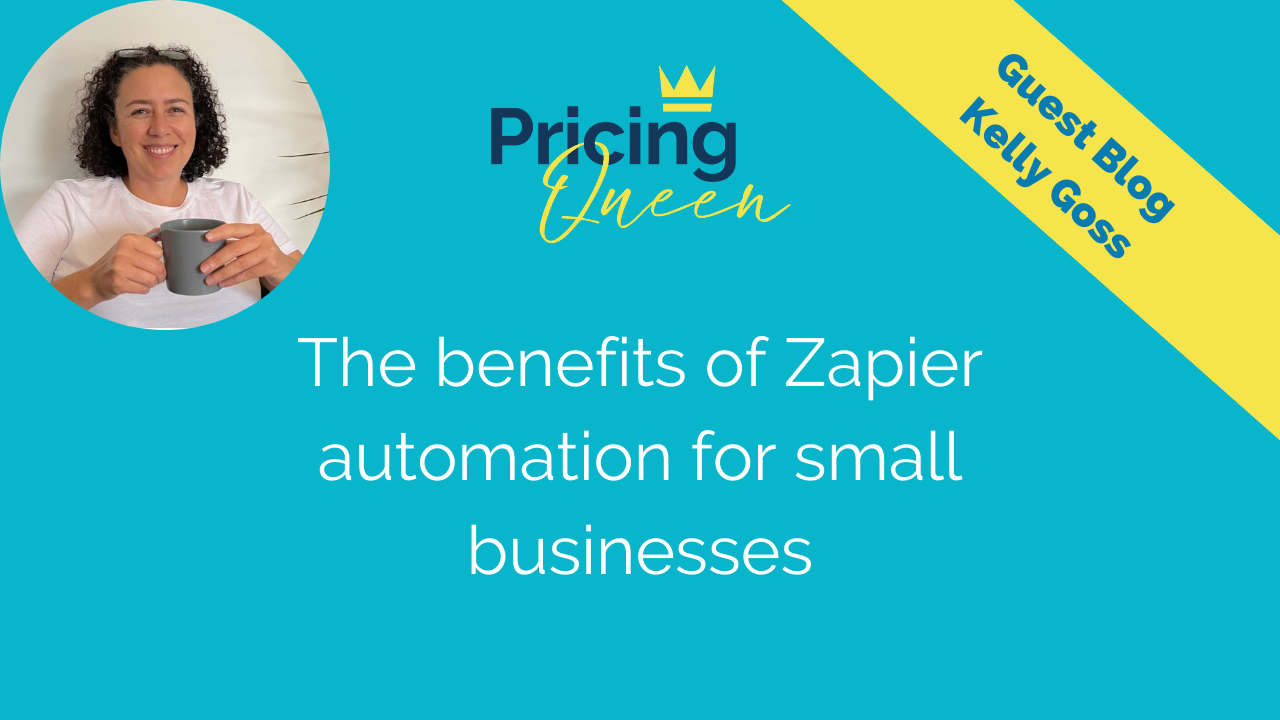
Have you ever needed an extra pair of hands in your business, or wished you had a few more hours in the day? Business process automation could be the answer! But what does that even mean, and where does Zapier fit into the puzzle? Here’s all you need to know…
What is business process automation?
To run your small business, you probably use a variety of different software applications, such as Outlook or Gmail, Excel or Google Sheets, an accounting system such as Quickbooks Online or Xero and a CRM which could be Salesforce or Pipedrive. All of these systems consume data and if they are disconnected then you often have to rekey the information from one into the other. This can be extremely time consuming and also prone to human error. So, wouldn’t it be cool if they could all talk to each other and pass the relevant data between them? That’s the essence of business process automation! It means that you can focus on other stuff and leave the robots to take care of the boring,...
5 things I wish I'd known when I started my gift wrapping business
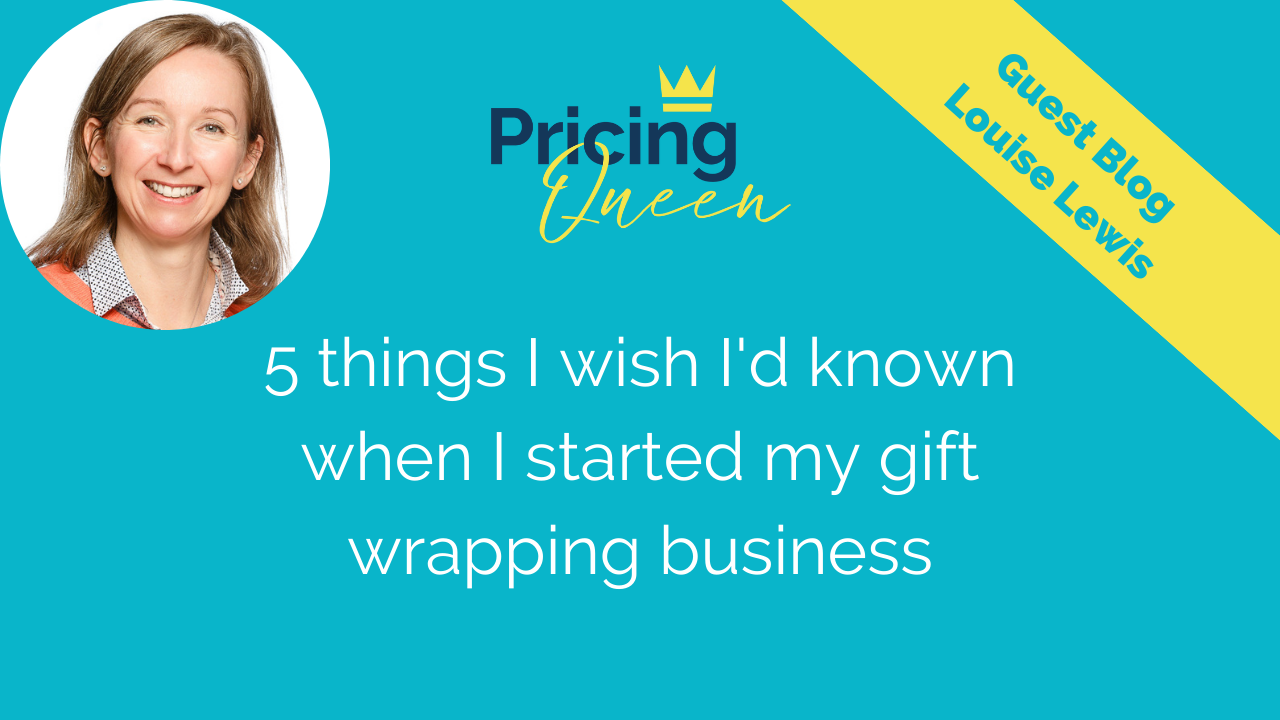
Are you thinking of setting up a gift wrapping business? Maybe you're feeling overwhelmed wondering where to start? Or it could be that you have already made a start in getting set up but are wondering if you have covered everything?
Here are my 5 things I wish I'd known when I started my gift wrapping business.
No 1: Deciding early on who your customers are going to be
You need to decide how much time you can give to your gift wrapping business. It's easy to fall into wanting to offer a gift wrapping service to everyone, a private customer to big corporates. You could end up feeling very overwhelmed as they are going to have very different needs. A couple of small gifts for a private customer may not take you too long but a corporate may want several 100 or 1000 of gifts wrapped.
No 2. Deciding prices and don't forget to factor in P&P
Gift wrapping is still quite a niche business to be in, so deciding on how much to charge can be quite difficult as there is very little out there...
How to talk to your husband about your business numbers, so he stops suggesting you go back to a 9 to 5

When you’re in business the finances and making decisions about investments and money can feel overwhelming. If you’re married it’s natural you may turn to your husband for support and talk about your thoughts, worries and questions. But you might not get the response you were hoping for. And if your husband keeps suggesting that you should go back to you 9 to 5 because your business is not yet making the money you need, it can leave you feeling that you can’t talk to your husband about it.
If that sounds like you, this blog will help. I will explain how to talk to your husband about your business numbers so that you get the support you want and he stops suggesting you go back to a 9 to 5.
But firstly there’s some things it’s helpful to understand about our brains. The male and female brain are not exactly the same. This means that we experience, respond and react quite differently to the same situation.
- The male brain is set up to be practical, logical and find solutions – ...
Ten tips to improve conversions on your website and so increase your revenue
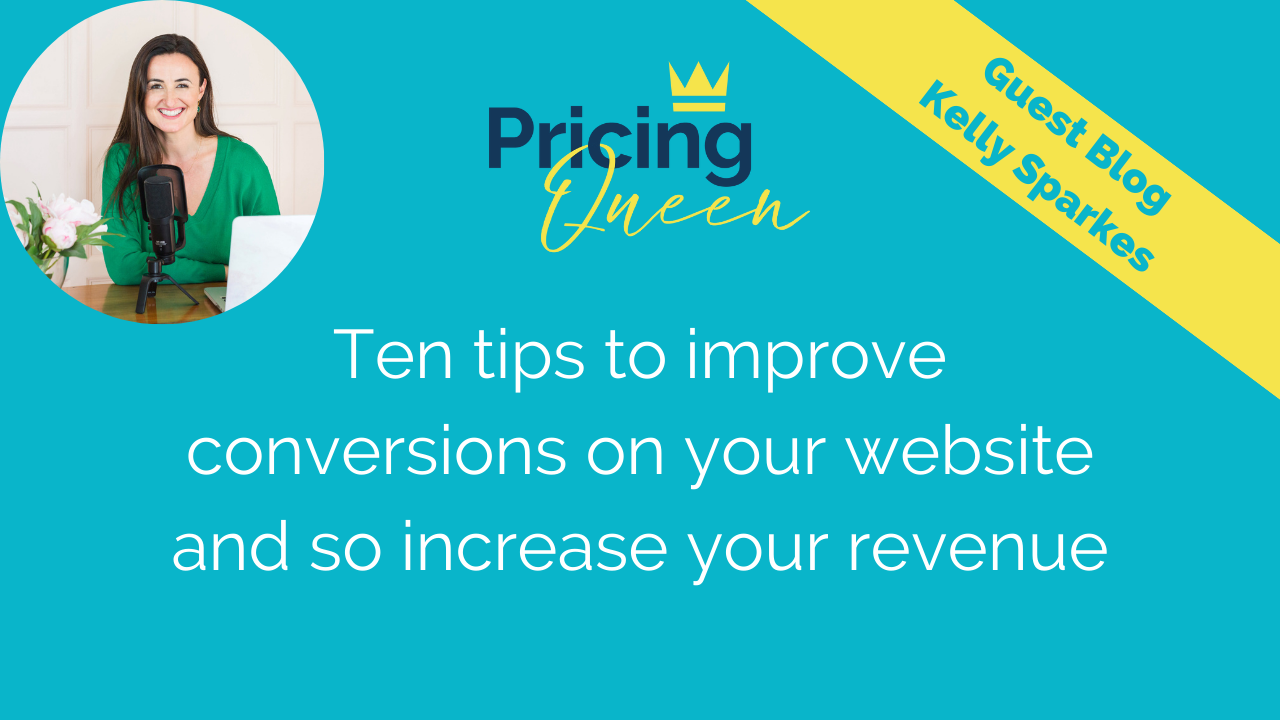
Many factors reflect your Website conversion rate, the trust in your brand, the website design and attracting the right people to your site. Once you get them there, you want to ensure that you have optimised your Website for maximum sales.
This post shares ten things you can do on your Website to help you get started, steadily increase your website conversion rate and improve your turnover.
1) Improve your imagery
The most crucial aspect of your product page is the photos; poor quality grainy photos will make the visitor lose trust in your brand. A brand product photographer can do wonders here, but if you don't have the budget for that yet, ensure the photos are bright, well-lit and sharp, keeping consistency throughout your Website.
Make sure more than one photo, showing different angles and a video if possible so they can get a feel for your product.
When uploading the images to your Website, ensure they are in the correct format (usually jpg) and are the right size; as a rule...
Mental fitness is a crucial business asset – how to start building yours with 5 minutes a day
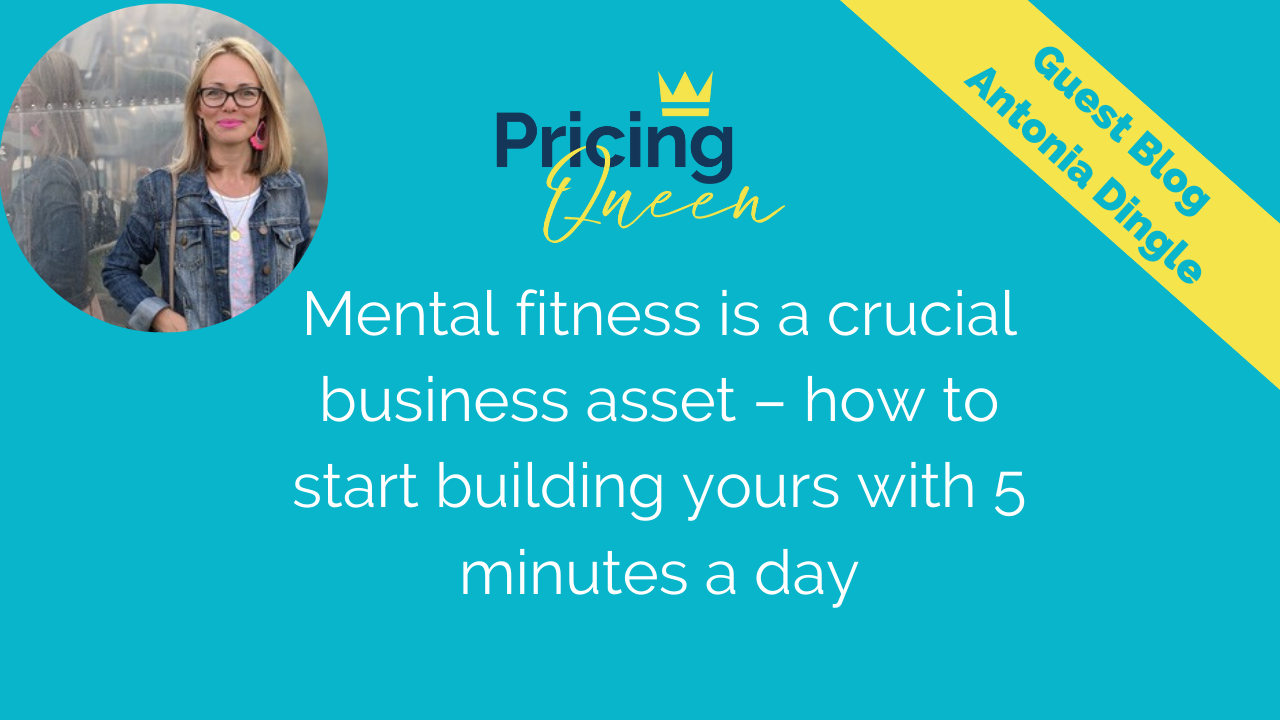
Founding a business is rewarding, affirming and stimulating, yet in equal measure challenging, lonely, stressful and the mother-of-all-juggles. And that was before COVID-19. I know you get it, because you are in it. What’s more, these struggles are particularly felt by female founders.
Gallup Healthcare (2020) report that female small business owners experience more stress and worry than their male counterparts, with incidence almost doubling since COVID-19. 31% of female business owners report that their mental health has deteriorated since COVID-19, compared to 20% of male business owners.
These are concerning stats. As a founder, your mental fitness is a crucial asset – you cannot run your business without it – yet it’s often overlooked. Research shows entrepreneurs experience more stress, anxiety, depression and burnout than others in society. Entrepreneurship is a particularly intense, and often isolated path. You work all hours, rarely switch off from the job, and it be...
Looking for practical guidance on all aspects of managing employees?
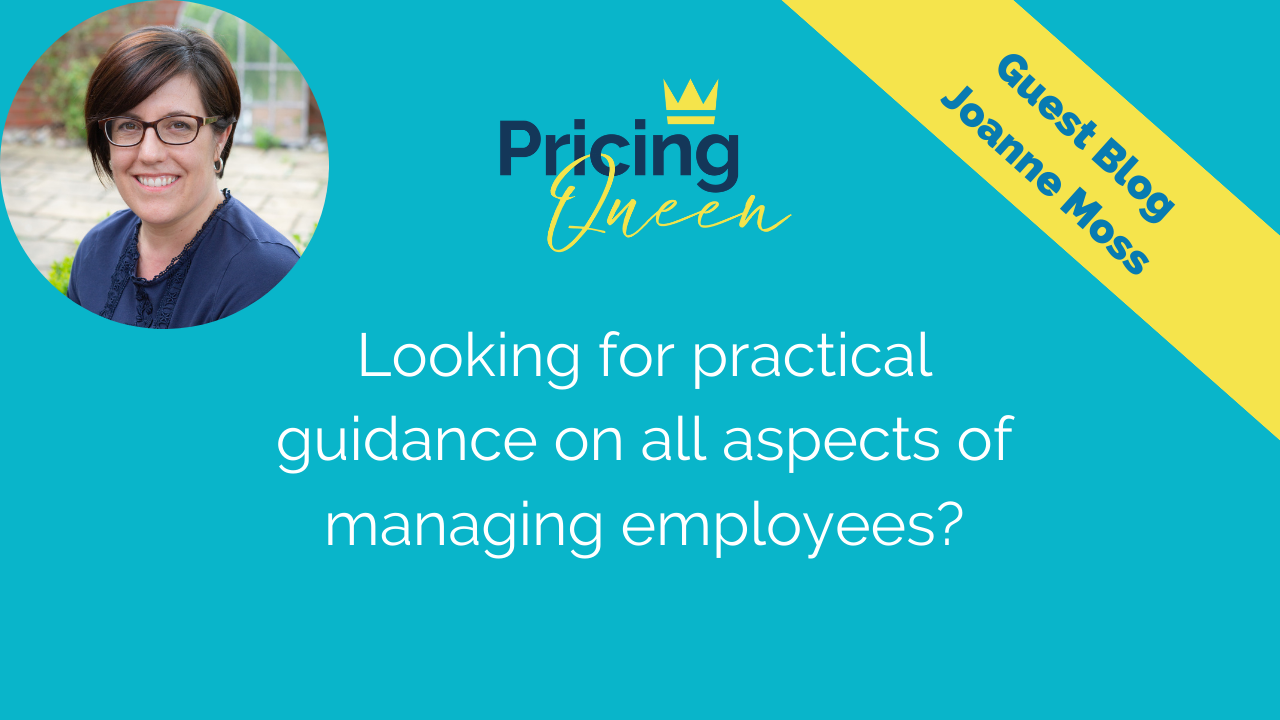
Moss HR Limited - Your partner in managing people
Looking for practical guidance on all aspects of managing employees?
Moss HR is an independent HR consultancy based in rural Suffolk. We work with small to medium-sized businesses across the East of England including, Suffolk, Cambridgeshire, Norfolk and Essex and beyond.
We believe that working in collaboration with you will get the best results and will consult with you to understand your organisation, its strengths, and obstacles to get the success you want. There’s never a one size fits all when managing people!
Business booming but not enough time in the day? Thought about taking someone on but don’t know where to start? Moss HR provide straight-forward advice for small to medium sized
Organisations. Contact us for our Simple Steps tool kit for taking on your first employee.
How do you know you’re ready to take on your first employee?
Ask yourself these questions:
Do I want to grow my business?
Do I need help to achieve my...
